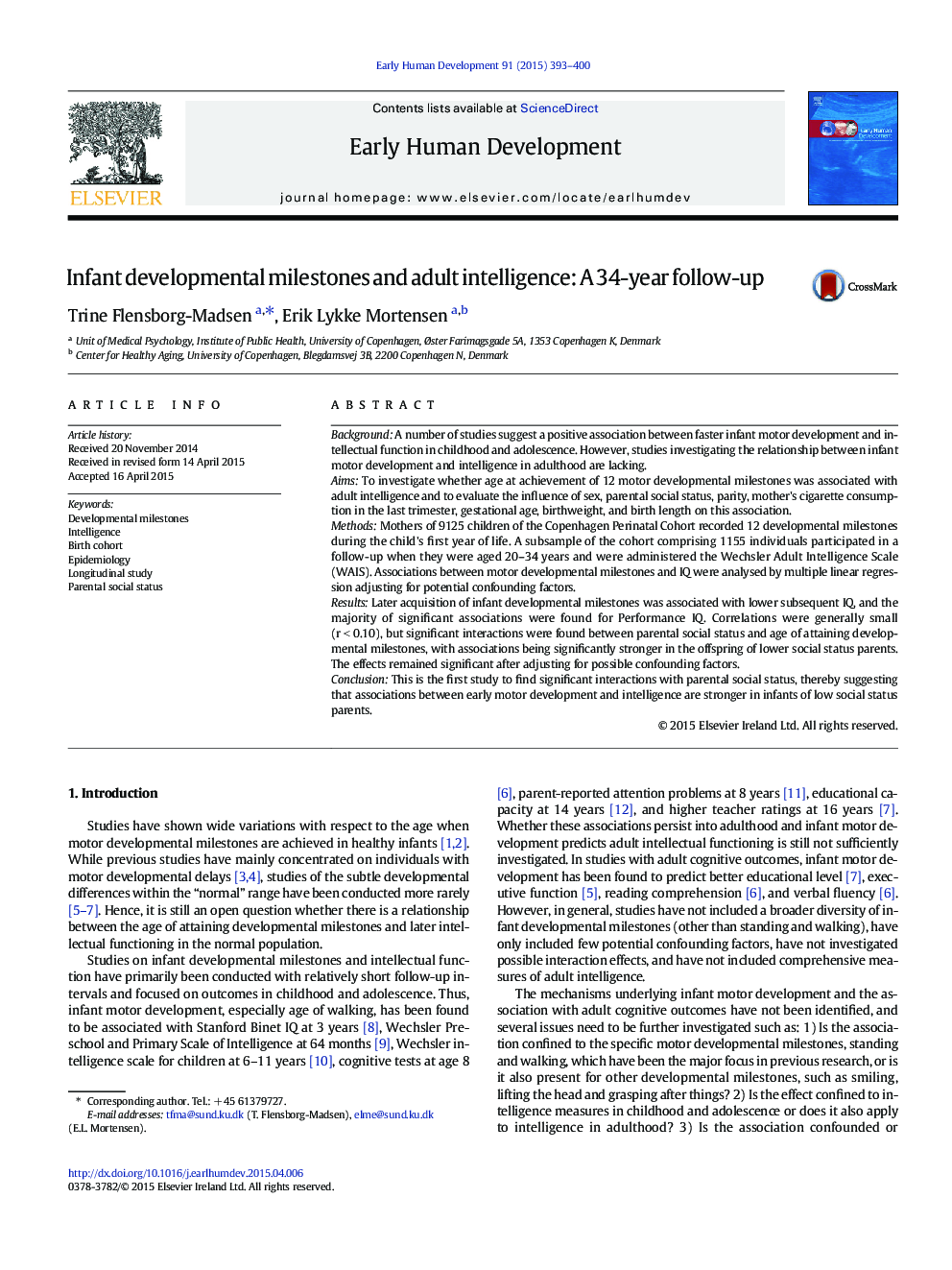| کد مقاله | کد نشریه | سال انتشار | مقاله انگلیسی | نسخه تمام متن |
|---|---|---|---|---|
| 6171978 | 1252074 | 2015 | 8 صفحه PDF | دانلود رایگان |
- Later acquisition of infant developmental tasks was associated with lower subsequent IQ.
- Associations between infant developmental tasks and IQ were stronger in the offspring of lower social status parents.
- To 'walk without support' accounted for 9.2% of the variance in Performance IQ in the low parental social status subsample.
BackgroundA number of studies suggest a positive association between faster infant motor development and intellectual function in childhood and adolescence. However, studies investigating the relationship between infant motor development and intelligence in adulthood are lacking.AimsTo investigate whether age at achievement of 12 motor developmental milestones was associated with adult intelligence and to evaluate the influence of sex, parental social status, parity, mother's cigarette consumption in the last trimester, gestational age, birthweight, and birth length on this association.MethodsMothers of 9125 children of the Copenhagen Perinatal Cohort recorded 12 developmental milestones during the child's first year of life. A subsample of the cohort comprising 1155 individuals participated in a follow-up when they were aged 20-34 years and were administered the Wechsler Adult Intelligence Scale (WAIS). Associations between motor developmental milestones and IQ were analysed by multiple linear regression adjusting for potential confounding factors.ResultsLater acquisition of infant developmental milestones was associated with lower subsequent IQ, and the majority of significant associations were found for Performance IQ. Correlations were generally small (r < 0.10), but significant interactions were found between parental social status and age of attaining developmental milestones, with associations being significantly stronger in the offspring of lower social status parents. The effects remained significant after adjusting for possible confounding factors.ConclusionThis is the first study to find significant interactions with parental social status, thereby suggesting that associations between early motor development and intelligence are stronger in infants of low social status parents.
Journal: Early Human Development - Volume 91, Issue 7, July 2015, Pages 393-400
